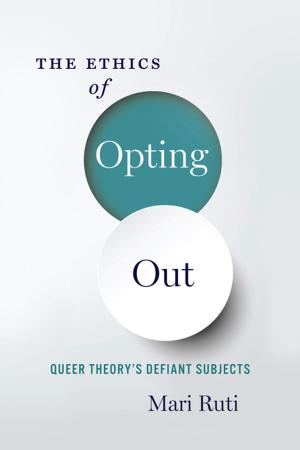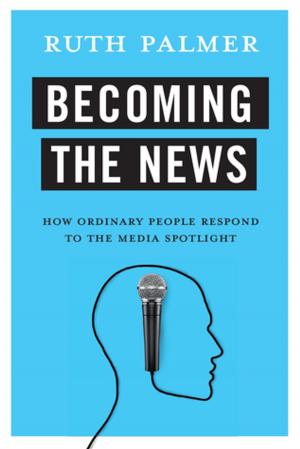David Foster Wallace's Balancing Books
Fictions of Value
Fiction & Literature, Literary Theory & Criticism, American| Author: | Jeffrey Severs | ISBN: | 9780231543118 |
| Publisher: | Columbia University Press | Publication: | January 3, 2017 |
| Imprint: | Columbia University Press | Language: | English |
| Author: | Jeffrey Severs |
| ISBN: | 9780231543118 |
| Publisher: | Columbia University Press |
| Publication: | January 3, 2017 |
| Imprint: | Columbia University Press |
| Language: | English |
What do we value? Why do we value it? And in a neoliberal age, can morality ever displace money as the primary means of defining value? These are the questions that drove David Foster Wallace, a writer widely credited with changing the face of contemporary fiction and moving it beyond an emotionless postmodern irony. Jeffrey Severs argues in David Foster Wallace's Balancing Books that Wallace was also deeply engaged with the social, political, and economic issues of the twentieth and twenty-first centuries. A rebellious economic thinker, Wallace satirized the deforming effects of money, questioned the logic of the monetary system, and saw the world through the lens of value's many hidden and untapped meanings. In original readings of all of Wallace's fiction, from The Broom of the System and Infinite Jest to his story collections and The Pale King, Severs reveals Wallace to be a thoroughly political writer whose works provide an often surreal history of financial crises and economic policies.
As Severs demonstrates, the concept of value occupied the intersection of Wallace's major interests: economics, work, metaphysics, mathematics, and morality. Severs ranges from the Great Depression and the New Deal to the realms of finance, insurance, and taxation to detail Wallace's quest for balance and grace in a world of excess and entropy. Wallace showed characters struggling to place two feet on the ground and restlessly sought to "balance the books" of a chaotic culture. Explaining why Wallace's work has galvanized a new phase in contemporary global literature, Severs draws connections to key Wallace forerunners Don DeLillo, Thomas Pynchon, and William Gaddis, as well as his successors—including Dave Eggers, Teddy Wayne, Jonathan Lethem, and Zadie Smith—interpreting Wallace's legacy in terms of finance, the gift, and office life.
What do we value? Why do we value it? And in a neoliberal age, can morality ever displace money as the primary means of defining value? These are the questions that drove David Foster Wallace, a writer widely credited with changing the face of contemporary fiction and moving it beyond an emotionless postmodern irony. Jeffrey Severs argues in David Foster Wallace's Balancing Books that Wallace was also deeply engaged with the social, political, and economic issues of the twentieth and twenty-first centuries. A rebellious economic thinker, Wallace satirized the deforming effects of money, questioned the logic of the monetary system, and saw the world through the lens of value's many hidden and untapped meanings. In original readings of all of Wallace's fiction, from The Broom of the System and Infinite Jest to his story collections and The Pale King, Severs reveals Wallace to be a thoroughly political writer whose works provide an often surreal history of financial crises and economic policies.
As Severs demonstrates, the concept of value occupied the intersection of Wallace's major interests: economics, work, metaphysics, mathematics, and morality. Severs ranges from the Great Depression and the New Deal to the realms of finance, insurance, and taxation to detail Wallace's quest for balance and grace in a world of excess and entropy. Wallace showed characters struggling to place two feet on the ground and restlessly sought to "balance the books" of a chaotic culture. Explaining why Wallace's work has galvanized a new phase in contemporary global literature, Severs draws connections to key Wallace forerunners Don DeLillo, Thomas Pynchon, and William Gaddis, as well as his successors—including Dave Eggers, Teddy Wayne, Jonathan Lethem, and Zadie Smith—interpreting Wallace's legacy in terms of finance, the gift, and office life.















